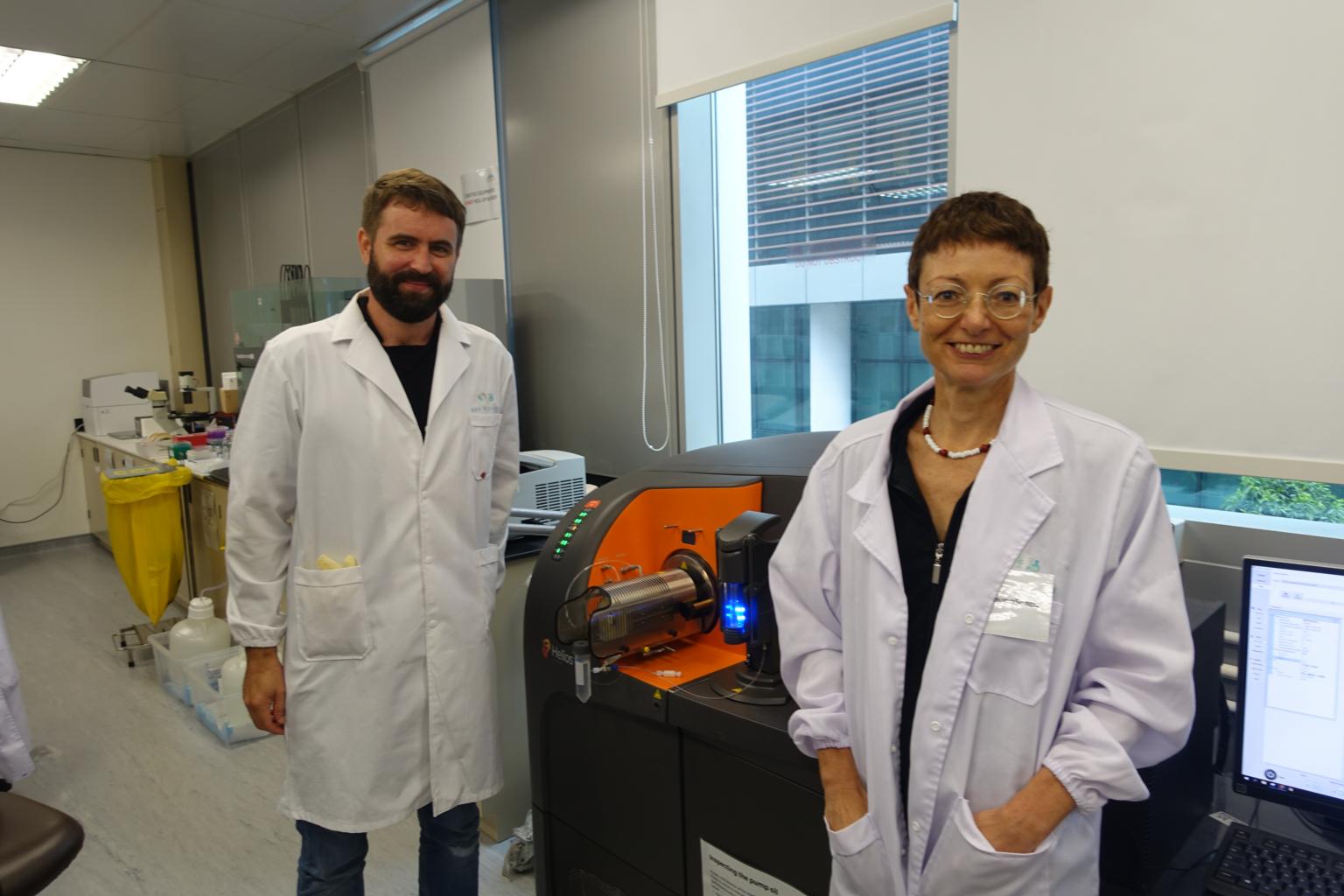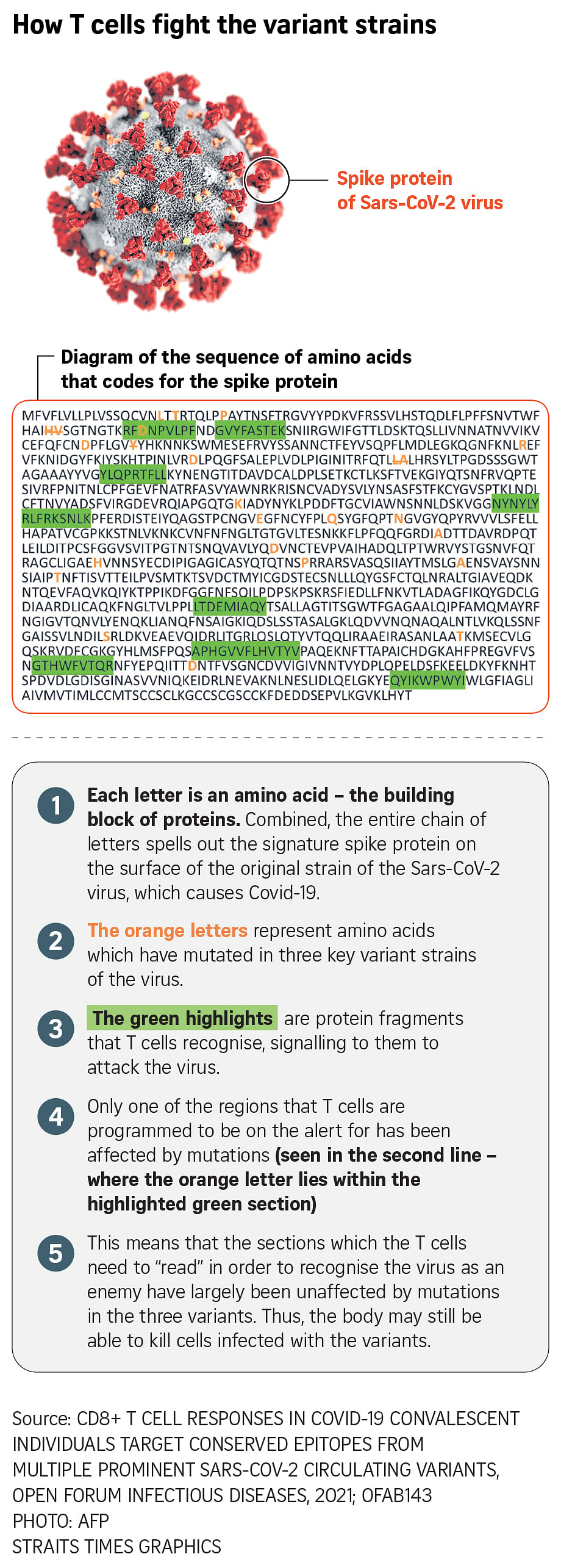S'pore to study how T cells of immune system respond to fight Covid-19
Sign up now: Get ST's newsletters delivered to your inbox

ImmunoScape co-founders Michael Fehlings and Alessandra Nardin. The firm is seeking some 250 T cell samples from vaccinated individuals.
PHOTO: IMMUNOSCAPE
SINGAPORE - A study on how T cells, a critical component of the immune system, respond to fight Covid-19 infection in vaccinated individuals will start here next month.
T cells are a type of white blood cell that work together with antibodies to eradicate the Sars-CoV-2 virus, which causes Covid-19.
Local biotechnology firm ImmunoScape is working with two vaccine companies to recruit more than 70 vaccinated individuals for its study here.
The Straits Times has learnt that one of the companies is Arcturus Therapeutics, the American pharmaceutical company working with Duke-NUS Medical School scientists to develop Singapore's own Covid-19 vaccine. The other company is based in Europe.
ImmunoScape is looking to obtain some 250 blood samples from the vaccinated individuals, with each person providing samples before and after vaccination. Samples will also be collected at several points after vaccination. These samples will be obtained both locally and from around the world.
The amount of T cells produced in response to the vaccine and how long they remain in the body will then be measured over time.
Dr Alessandra Nardin, co-founder and chief operating officer of ImmunoScape, said: "The information from our studies will complement data on antibody response and help us understand whether the immune response induced by vaccines may be effective against new variants."
ImmunoScape, which was spun off from the Agency for Science, Technology and Research (A*Star) in 2017, was also part of a United States-based laboratory study which showed that T cells induced by the original Covid-19 strain are also able to react against three of the most concerning new virus variants.
The findings of this variant study was released on March 30 and showed that the T cells of patients who were infected with the original virus were able to fully recognise Britain's B117 strain, the Brazilian P1 variant and South Africa's B1351 variant.
Much work around the world has been focused on antibody response against Sars-CoV-2. However, a robust T cell response has also been shown to aid the body's fight against the virus.
Viruses induce the production of antibodies - Y-shaped proteins that bind to the surface of the virus and thus hinder virus entry into human cells. If the right antibodies are present in sufficient amounts before an individual is exposed to a virus - because they are generated by vaccination, for instance - they may be able to prevent viral infection altogether.
On the other hand, viral infection also results in the activation and expansion of T cells, which recognise and kill infected cells where the virus is replicating, and boost antibody production.
This research was a collaboration between ImmunoScape, the National Institute of Allergy and Infectious Diseases (NIAID), the Johns Hopkins University School of Medicine and the Johns Hopkins Bloomberg School of Public Health.
The researchers analysed blood from 30 people who had recovered from Covid-19 before the emergence of the new, more contagious variants.
From those samples, they identified T cells active against multiple protein fragments from the virus, and looked at how these T cells fared against the three variants.
A total of 45 different mutations on different proteins of the Sars-CoV-2 virus, including the spike protein, have been identified in the three variants by researchers worldwide.
The team from ImmunoScape and NIAID found that virtually all the protein fragments that were recognised by the T cells were unaffected by the mutations. This would suggest that T cell protection against the variants may remain intact.
Dr Michael Fehlings, co-founder of ImmunoScape and the vice-president of operations and development, said: "Our studies will highlight the importance of finally mapping which parts of the virus are recognised by T cells after infection or vaccination. But larger studies against the variants will still be needed to assess protection."



